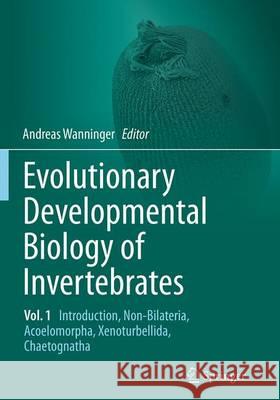Evolutionary Developmental Biology of Invertebrates 1: Introduction, Non-Bilateria, Acoelomorpha, Xenoturbellida, Chaetognatha » książka
topmenu
Evolutionary Developmental Biology of Invertebrates 1: Introduction, Non-Bilateria, Acoelomorpha, Xenoturbellida, Chaetognatha
ISBN-13: 9783709119853 / Angielski / Miękka / 2016 / 251 str.
Evolutionary Developmental Biology of Invertebrates 1: Introduction, Non-Bilateria, Acoelomorpha, Xenoturbellida, Chaetognatha
ISBN-13: 9783709119853 / Angielski / Miękka / 2016 / 251 str.
cena 282,12
(netto: 268,69 VAT: 5%)
Najniższa cena z 30 dni: 270,20
(netto: 268,69 VAT: 5%)
Najniższa cena z 30 dni: 270,20
Termin realizacji zamówienia:
ok. 16-18 dni roboczych.
ok. 16-18 dni roboczych.
Darmowa dostawa!
Kategorie:
Kategorie BISAC:
Wydawca:
Springer
Język:
Angielski
ISBN-13:
9783709119853
Rok wydania:
2016
Wydanie:
Softcover Repri
Ilość stron:
251
Oprawa:
Miękka
Wolumenów:
01
Dodatkowe informacje:
Wydanie ilustrowane











